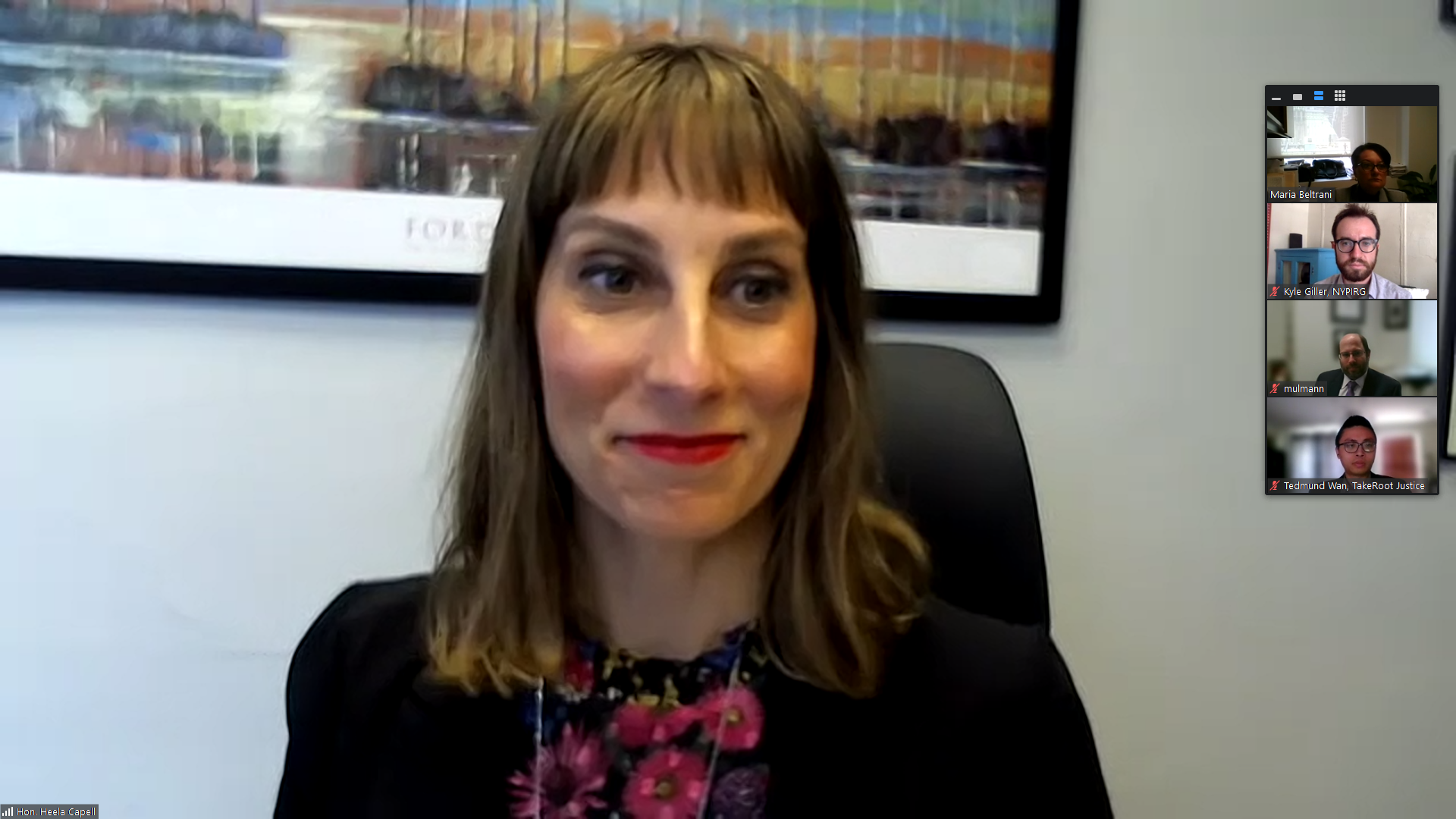Brooklyn Women’s Bar Association hosts seminar on security deposits

Judge Heela Capell, a beacon of knowledge and judicial wisdom, flashes a warm smile during the Brooklyn Women's Bar Association's online seminar, exemplifying her dedication to educating attorneys about tenant rights. Screenshots via Zoom.
The Brooklyn Women’s Bar Association (BWBA) hosted a virtual Continuing Legal Education (CLE) seminar on Wednesday, aimed at educating attorneys on the intricate details of security deposit laws.
The seminar, titled “Security Deposits: What Attorneys Should Know to Protect Their Clients’ Rights”, garnered high praise for its comprehensive coverage and quality of discussion.

“I think this was very worthwhile,” said BWBA President Susan Mauro, commending the seminar’s organization and wealth of information. “For someone who doesn’t practice in the area, I found it very interesting to learn the ins and outs. I got a lot of details today. Thank you to Judge Capell for doing this.”